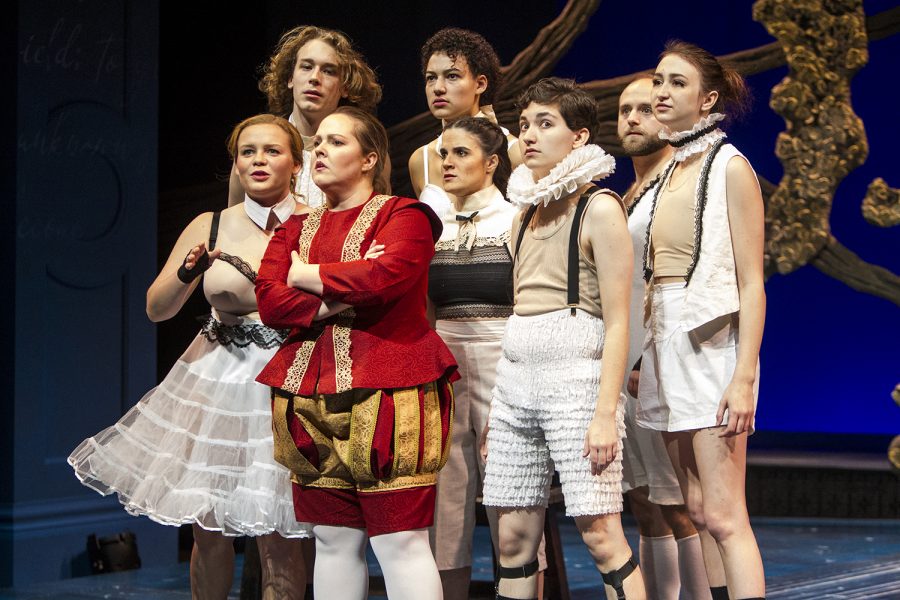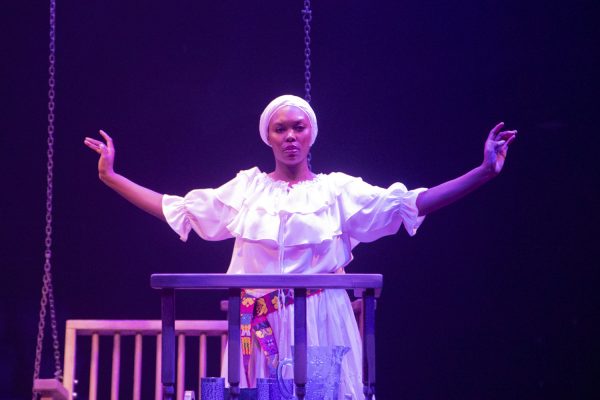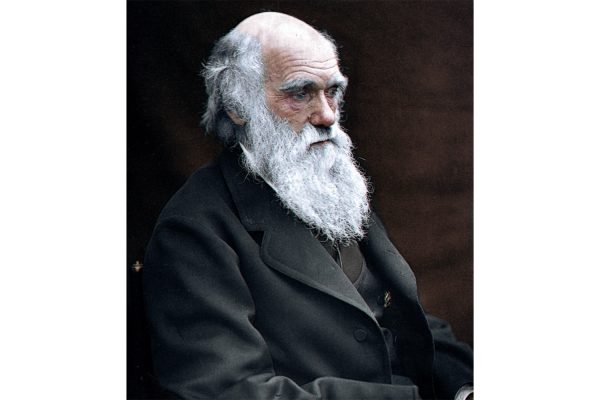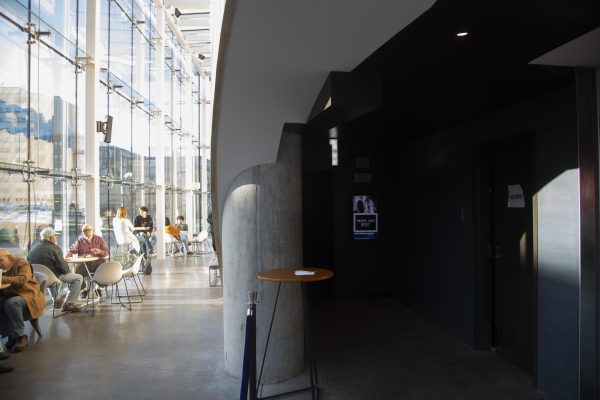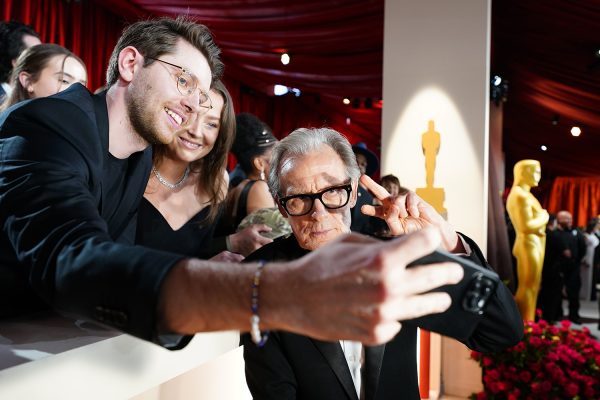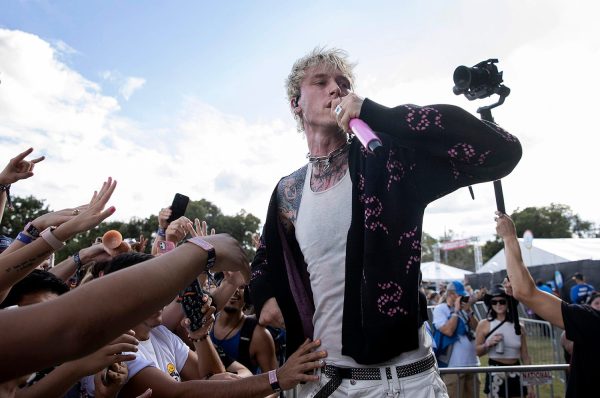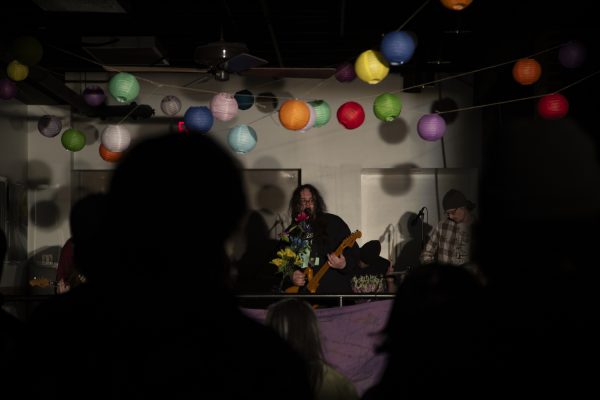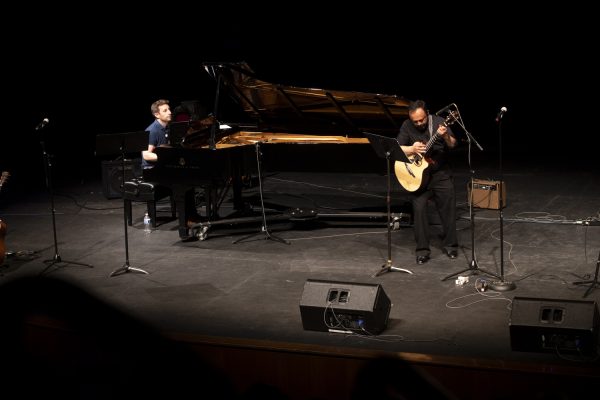UI theater department transcends time and gender with Orlando
The UI Theater Department’s production of Orlando merges two female literary voices in an adaptation that explores gender.
Actors perform during the dress rehearsal for Orlando on November 4, 2019. Orlando is directed by Erica Vannon and opens in the E.C. Mabie Theatre on Friday, November 8, 2019.
November 6, 2019
Sarah Ruhl’s adaptation of Virginia Woolf’s instant classic novel Orlando will come to life in the University of Iowa’s E.C. Mabie Theater starting this Friday, Nov. 8 through Nov. 16.
Directed by graduate student Erica Vannon, the stage version of Woolf’s story remains timely for its theme of gender nonconformity.
Amy Miller Martin stars as the title character, and spoke about what the character’s journey means in today’s cultural landscape.
“I definitely think that the character is meant to serve as a corollary to 21st century questions about gender identity. I hope that by mounting a production of this in 2019, we’re able to help further conversations of gender non-conforming individuals,” Martin said.
Morgan Grambo, Orlando’s dramaturg, described her role of mixing theater theory and research to keep the play true to the original time period in which the book was written.
“Hannah Schillinger, who is my assistant dramaturg, and I have paired up to work with our director Erica, to bring in as much context as we can in order to make the play as rooted in the reality of when the piece was written and what Virginia Woolf was trying to do, and also what Sarah Ruhl was doing in the adapting of the original text,” said Grambo.
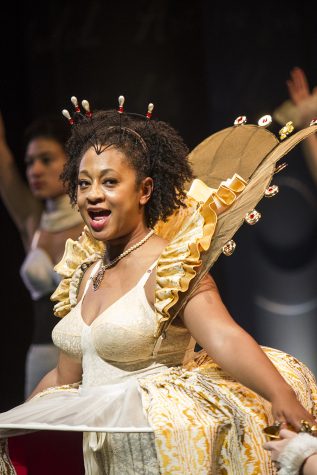
Actors perform during the dress rehearsal for Orlando on November 4, 2019. Orlando is directed by Erica Vannon and opens in the E.C. Mabie Theatre on Friday, November 8, 2019.
Laura Brightman, one of the actors in the play, spoke about how Ruhl’s adaptation allowed them to break the chains of being type-casted as the “older sister” or “teenage girl.”
“This was pretty new for me to be in a show that wasn’t hyper-realism and playing a character I’m not used to. I’m usually age cast as a young adult or teenager, so this was fun since I get to play a multitude of ages,” said Brightman.
Grambo also spoke about Ruhl’s dedication and admiration for Woolf’s prose, making it a blend of the two artists.
“Their language is merging in the play in a really beautiful way,” Grambo said. “Sarah Ruhl is naturally a poet. She’s working with poetry in the play. But what she does is she honors Virginia Woolf’s writing. I can’t give you a percentage, but a high percentage of the language is lifted directly from the novel. Which is really beautiful and makes it exceptionally challenging to perform.”
Brightman described the production as a feat for its many artistic contributions.
“It’s dreamy. It’s really special and artistically beautiful,” said Brightman. “We have this collaborative experience with the director to choreograph the images you will see. The designers are brilliant, especially the lighting.”
The show will also have some interactive stations where viewers can create their own poetry.
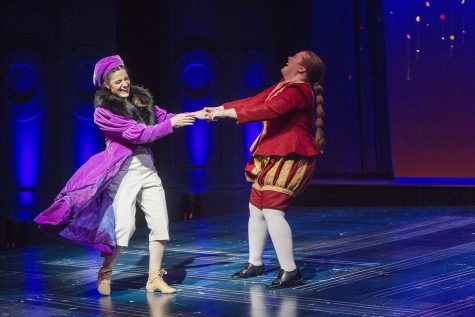
The characters of Sasha and Orlando share an intimate moment on stage during the dress rehearsal for Orlando on November 4. Orlando is directed by Erica Vannon and opens in the E.C. Mabie Theatre on Friday, November 8, 2019.
“In the lobby, we’re thinking of engaging with the poetry that is happening in the play,” Grambo said. “Orlando’s big project is this poem that they’re trying to finish entitled “The Oak Tree,” and is based on a poem by Vita Sackville-West titled “The Land,” which we’re going to be bringing pieces of to the lobby. And as college kids, we love magnetic poetry.”
Martin said she found Vannon’s vision was to give audiences a character who wouldn’t strictly be embodied by a single gender.
“From the outset, I think the goal of embracing this story and Erica’s vision is that we respect the duality that is present in so many people. In terms of how they perceive their identity and how that reflects who they are and where they sit in the world,” Martin said.



